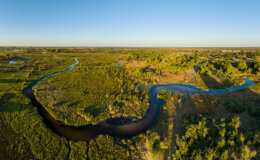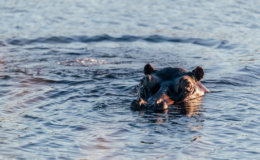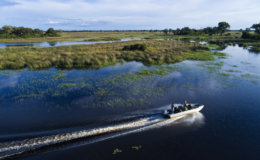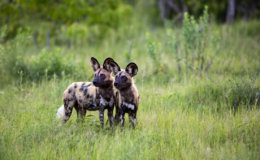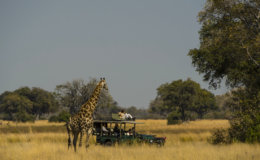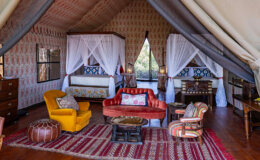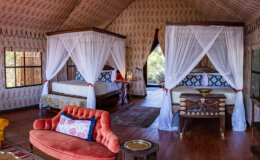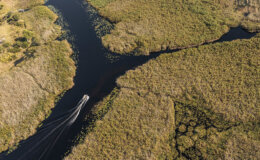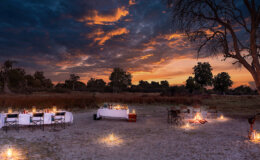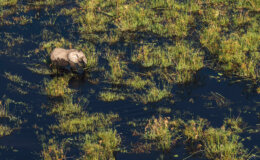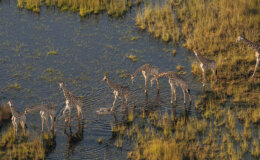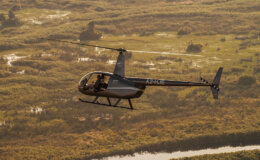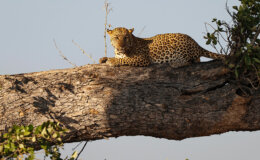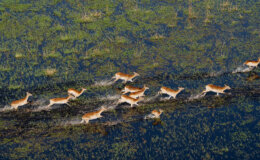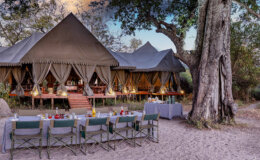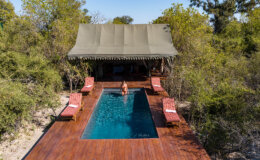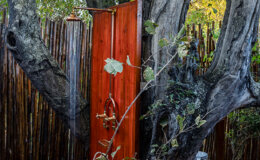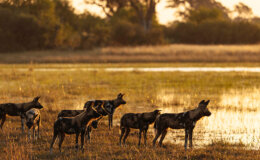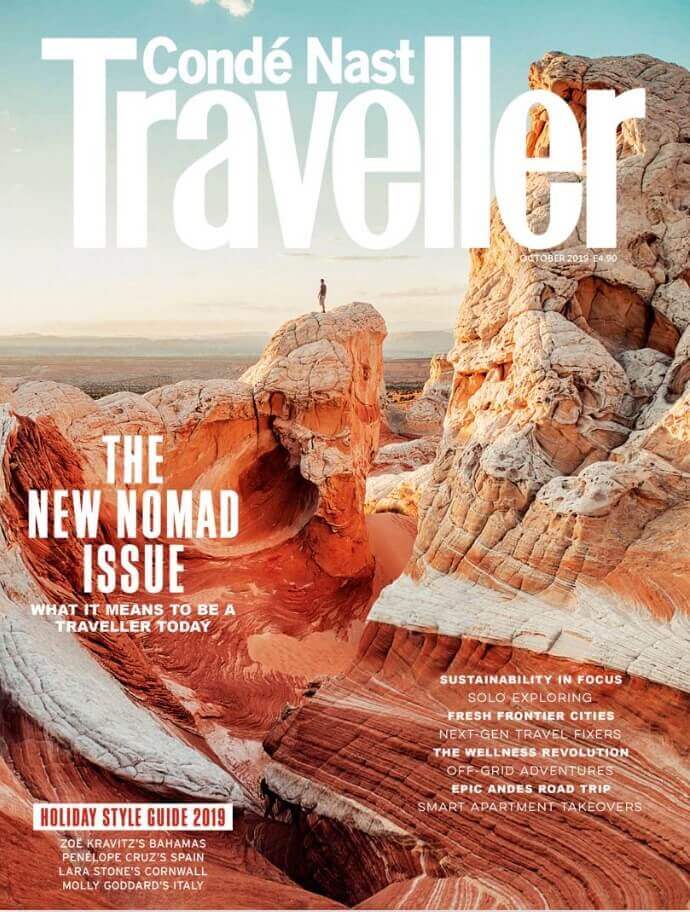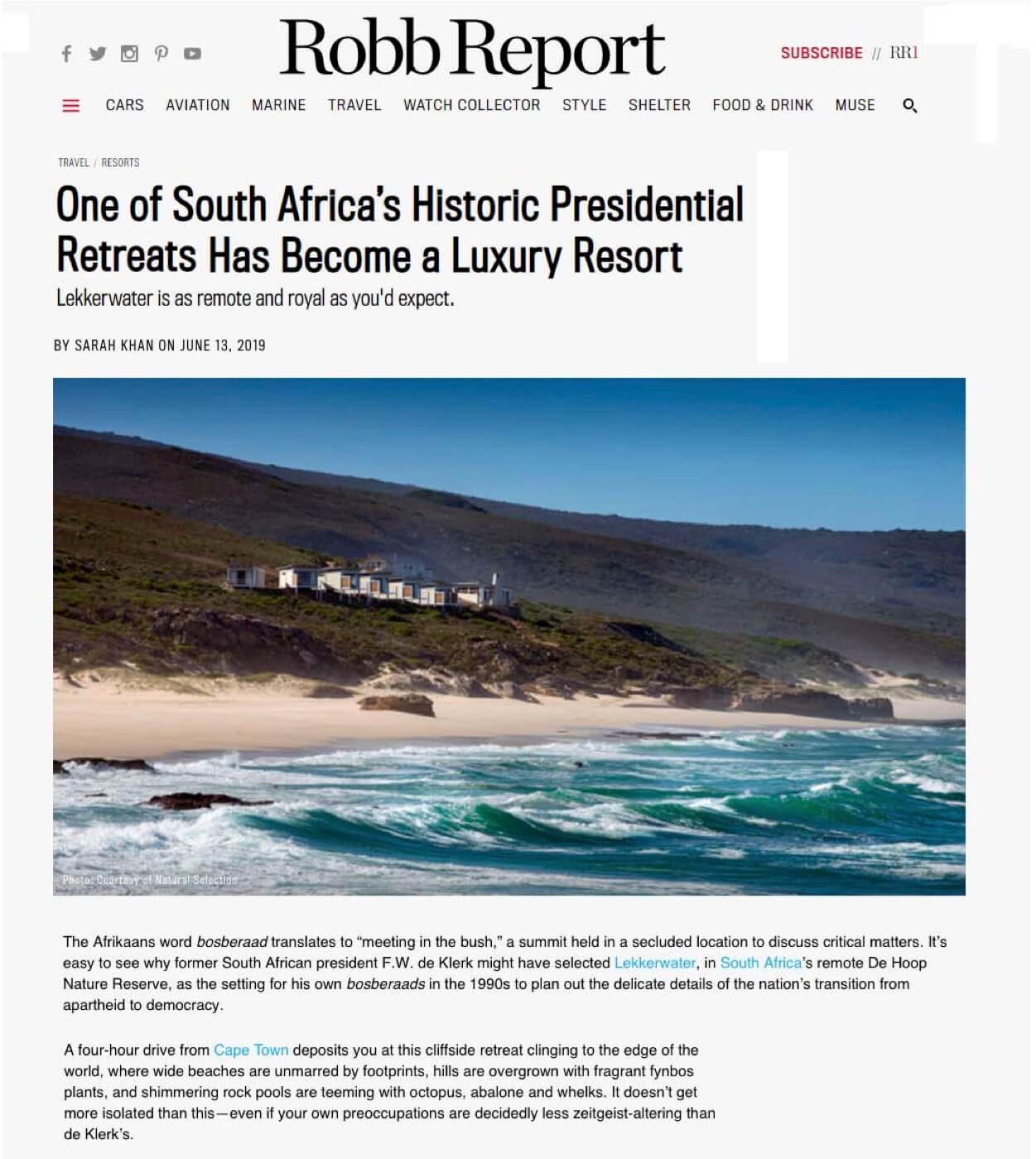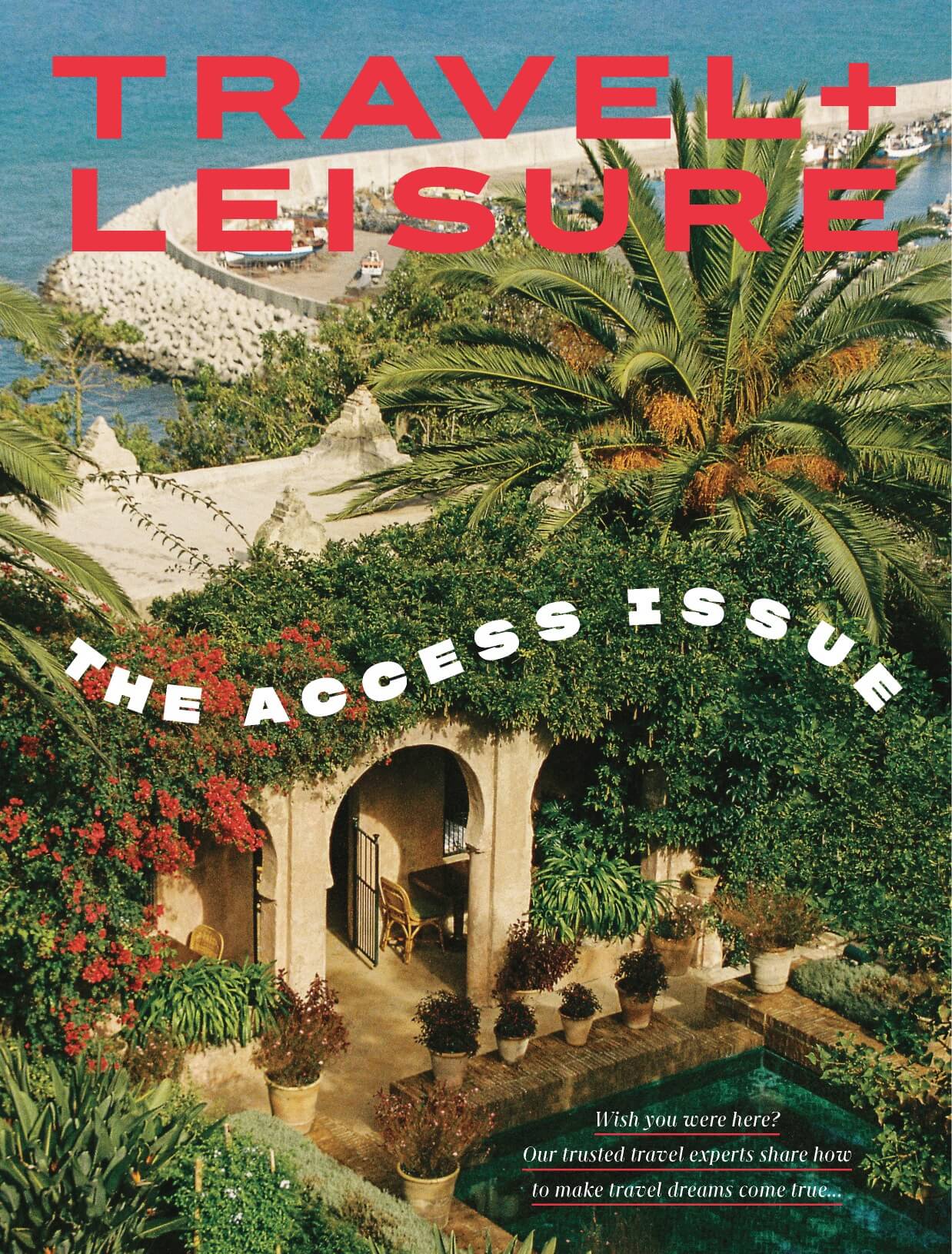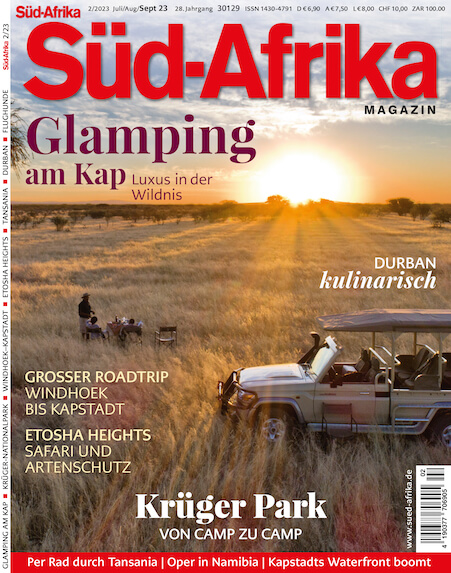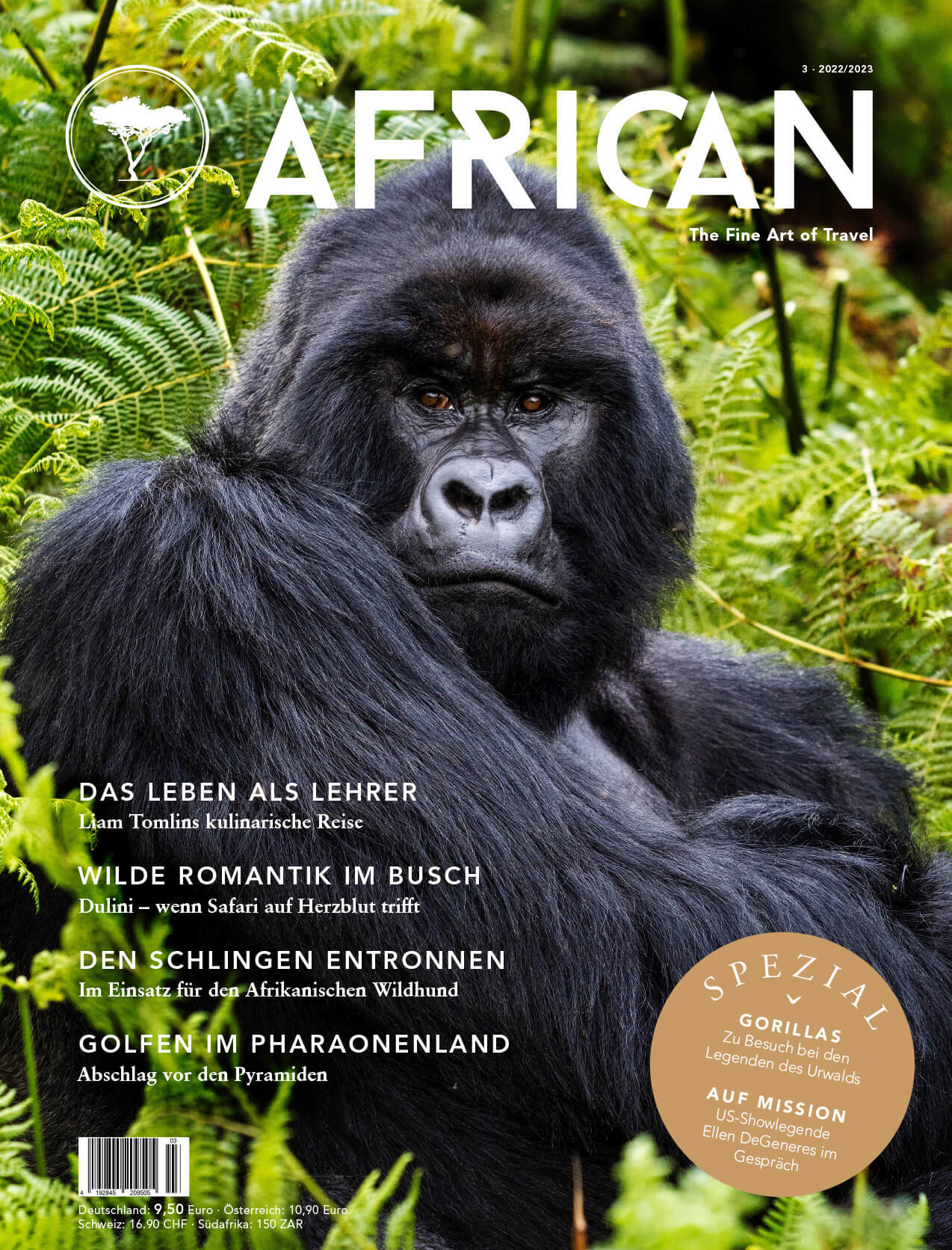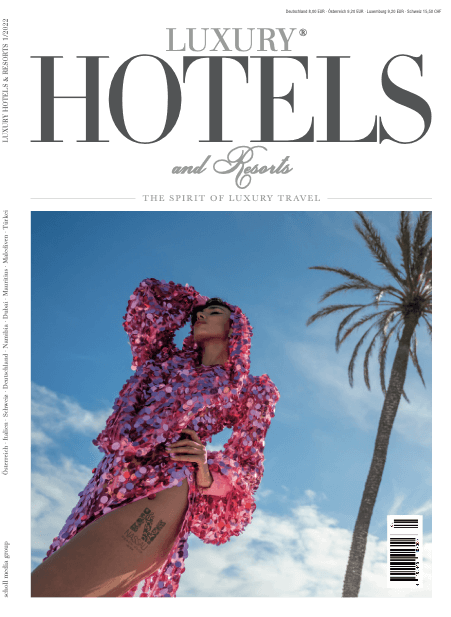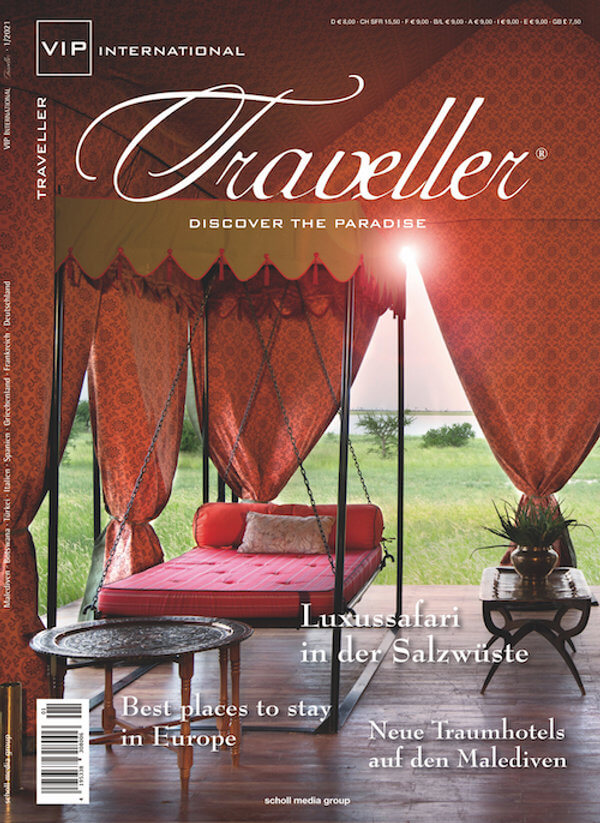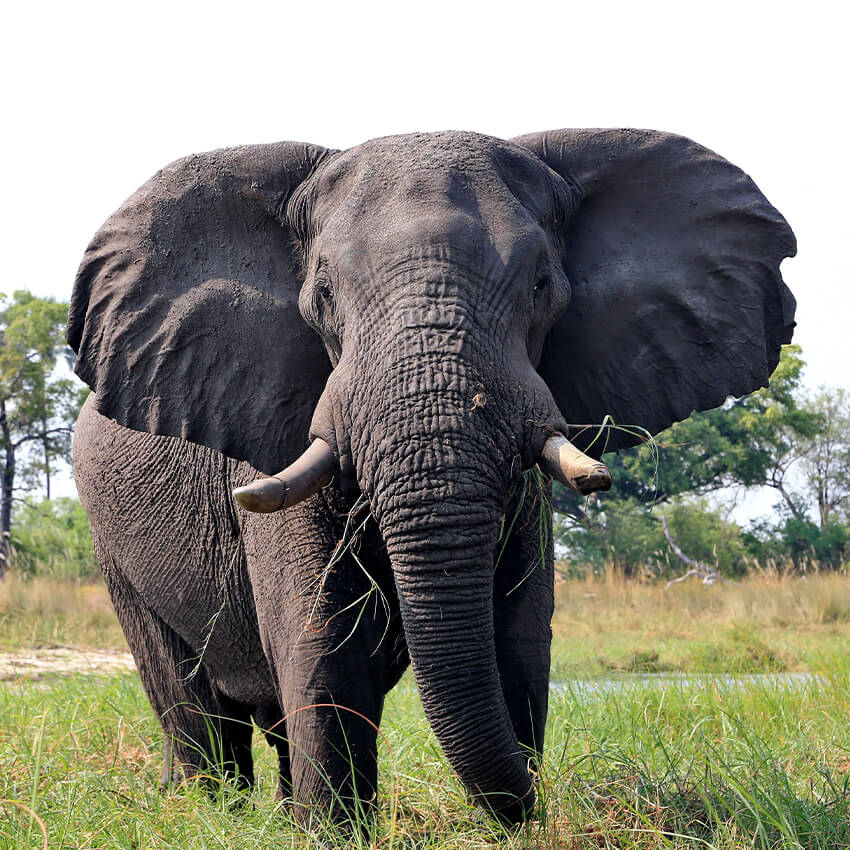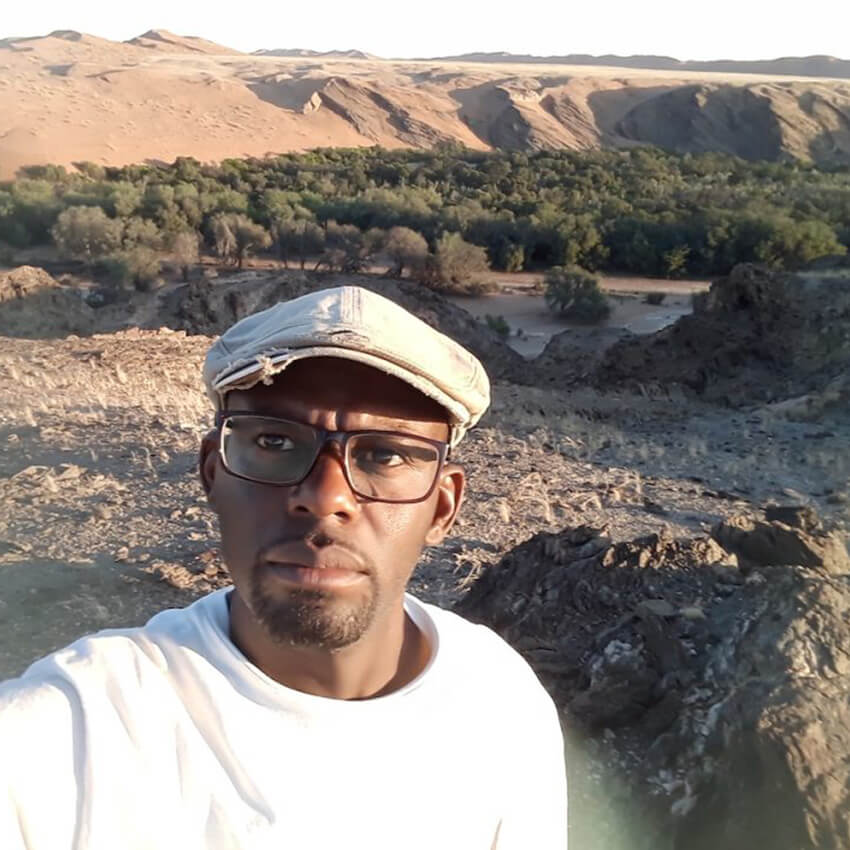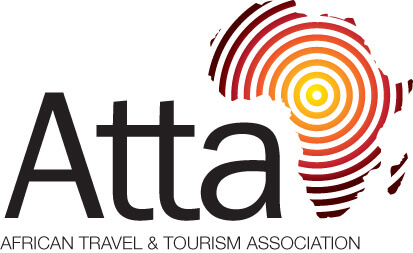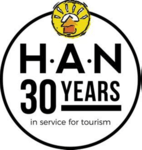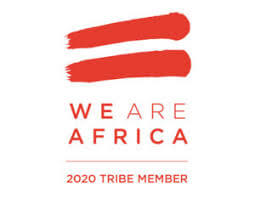Why You’ll Love Duke’s East:
- A smaller version of Duke's Camp, this camp is ideal for exclusive use groups or those seeking out a more intimate safari affair.
- Pitched in a remote wilderness area set on a channel of the northern Okavango Delta, this is unfiltered African wilderness combined with an inimitable safari style.
- Wilderness on the doorstep. This exceptional camp offers front-row seats to the Okavango Delta. With glorious views over a flood plain and seasonal lagoon, enjoy game viewing from the comfort of your under-canvas suite.
- Located in one of Africa’s most game-rich and beautiful concessions, you’ll enjoy one-of-a-kind wildlife encounters that will be etched in your memory for years to come.
- Immerse yourself in the wilderness with game drives, mokoro (dugout canoe) excursions, fishing, and sunset boat trips. Scenic helicopter flights and rock art visits are also available, at additional cost.
- It boasts some of the best safari guides in the business; trained by the safari legend Ralph Bousfield, winer of the Tatler Travel Best Safari Guide in Africa Award 2023
We recommend booking Duke’s East as part of a complete Natural Selection safari, but if you want to book it separately or just check availability, click here to select dates and book.
Interested in learning more about the prices? View Rates

